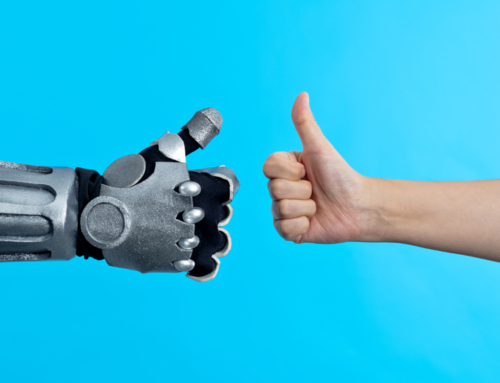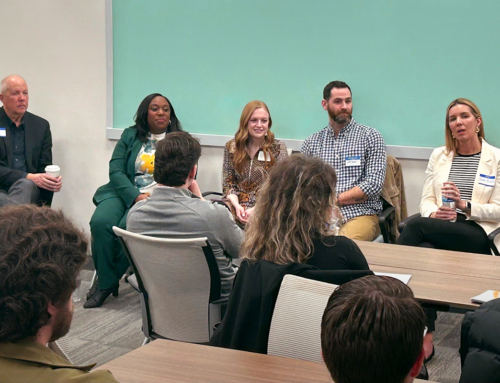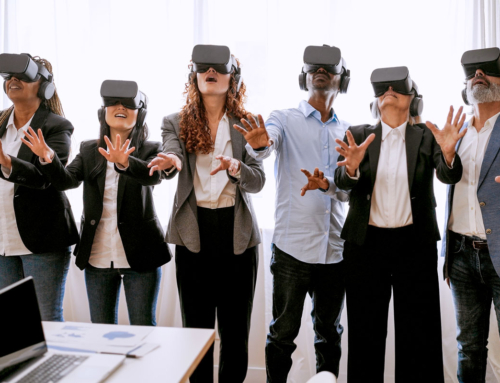What’s the difference between a successful presentation and a not-so-successful one? It could be artificial intelligence (AI).
Imagine this scenario: You’re on your way home from a sales pitch or job interview and your mind starts racing. Did it go well? Was the audience engaged? Did anyone laugh at my bad joke? It’s human to have these experiences, yet we’re often left in the dark about how our message was received until it’s too late.
Engineers at the University of Cincinnati (UC) have trained a computer to be an expert room reader and identify the subtle, nonverbal cues we’re often blind to in these situations. AI — a computer system that emulates aspects of human cognition — has been garnering plenty of attention these days thanks to the release in late 2022 of ChatGPT, a text chatbot trained to mimic how people write.
The UC application of AI is concerned not with written communication but with in-person interaction. Like ChatGPT, it can offer insights into the role of artificial intelligence in human connection. Here’s how it works:
Using data from wearable technology that measures respiration, heart rates and perspiration, researchers can spot when there’s harmony between two or more people. The phenomenon is called physiological synchrony, and that feeling we get when we’re deeply engaged in a conversation or cooperating closely on a task means that our bodies are literally jiving.
In experiments with human participants, the computer differentiated four different conversation scenarios with as much as 75% accuracy: one-sided, two-sided, positive or negative. (So, you can only imagine the signals you’re sending out when you’re talking to an out-of-towner about your love for Skyline.) The study, published in the journal of IEEE Transactions on Affective Computing, was one of the first of its kind to train artificial intelligence to recognize aspects of a conversation based on the participants’ physiology alone.
It may take a few years before we see this in app form, but study co-author Vesna Novak, an associate professor of electrical engineering at UC’s College of Engineering and Applied Science, said there’s a good case to be made for the technology’s benefit to human interaction.
“There are things AI can tell you, and you can say, ‘I already knew that,’ but there also are cases where an external observer can spot things you’re not aware of,” said Novak. “We all think and react differently, and we’re hoping this study can expand our understanding of interpersonal relations — whether that’s enhancing team-building or supporting people with autism.”
With the rise of more accessible AI like ChatGPT, people are finding themselves stuck between embracing technology or fearing the loss of humanity. Lead author of the UC study and doctoral student Iman Chatterjee encouraged organizations to learn what AI can do for them.
“The world is getting more dependent on technology, and AI has a huge impact,” he said. “Industries can look to this technology to see natural tendencies that make people more compatible.”
In the end, there’s an important distinction between using AI to enrich our experience versus define our future. As Novak put it, “AI is only as good as the humans who make it.”
This post was adapted from an article by the University of Cincinnati.








